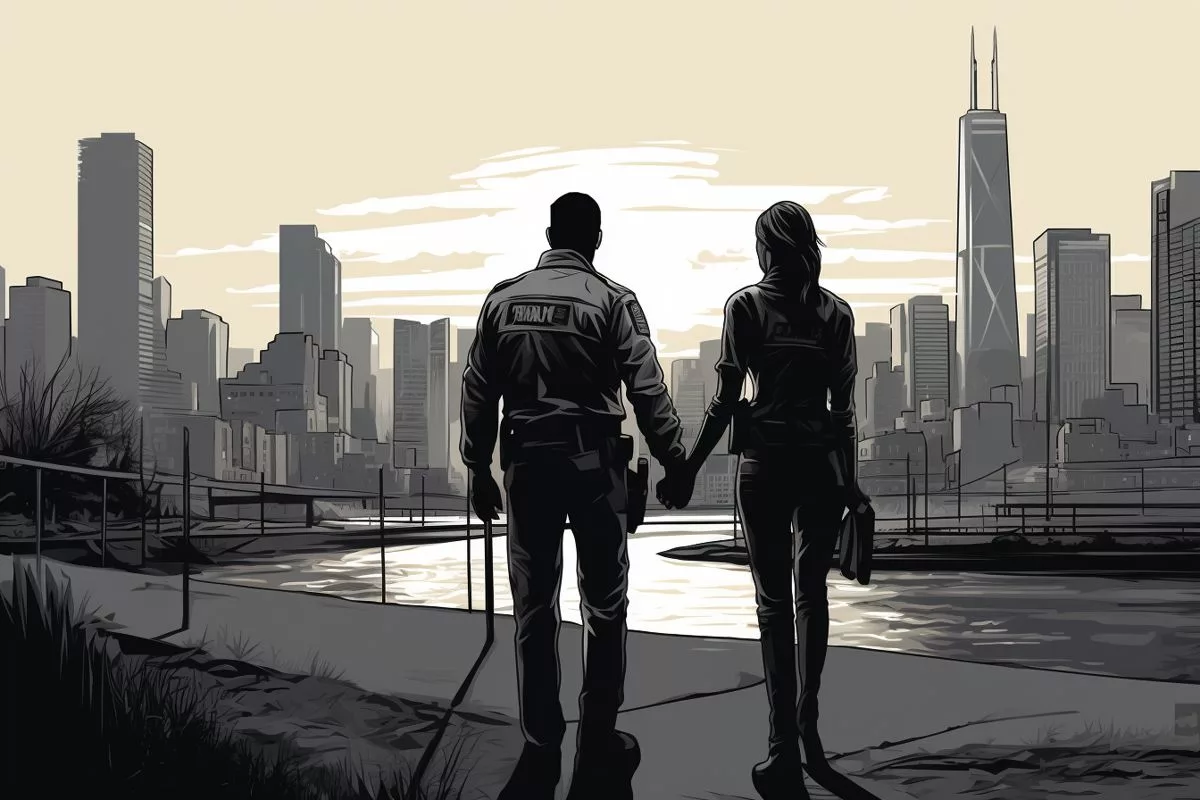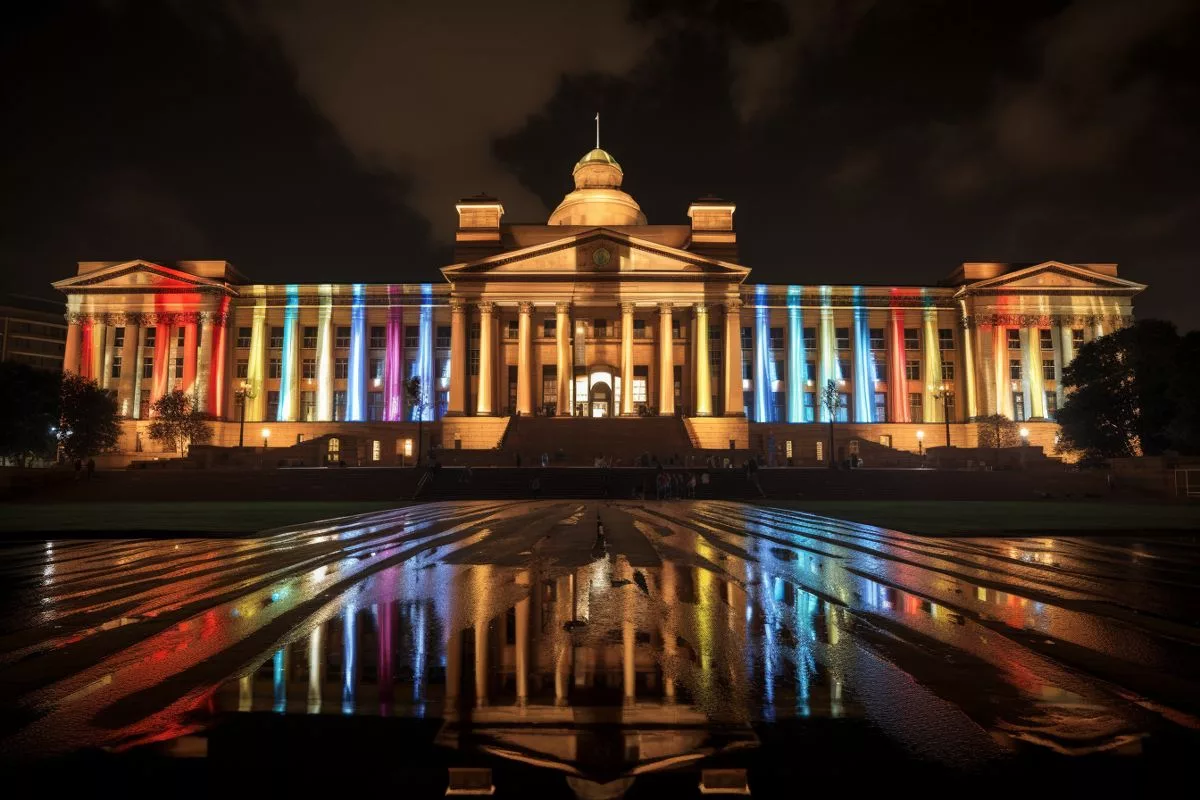The Police Commissioner of Gauteng, Lieutenant-General Elias Mawela, emphasizes the importance of civic duty and proactive involvement in law enforcement while presenting a detailed analysis of the crime statistics in the province. He pays tribute to the continuous efforts of law enforcement agencies and highlights the challenges that exist in society. Mawela’s presentation is not just a catalogue of numbers but a conscientious attempt to add depth to these figures, transforming them from simple tallies into meaningful narratives. It serves as a dynamic dialogue that depicts both the harsh realities and the silent victories of crime in Gauteng.
Understanding Crime and Law Enforcement in Gauteng
Gauteng’s Police Commissioner, Lieutenant-General Elias Mawela, presents a comprehensive analysis of the crime statistics in the province. His report highlights the performance of Metro Police Departments, emphasizing the importance of civic duty and proactive involvement in law enforcement. The presentation pays tribute to the continuous efforts of law enforcement agencies to ensure safety and order while acknowledging the challenges that exist in society.
An In-depth Examination of Crime in Gauteng
Early in the morning on Thursday, the 23rd of November 2023, Lieutenant-General Elias Mawela, Gauteng’s Police Commissioner, enters the brightly lit conference room at The Parktonian Hotel in Braamfonten. His goal is straightforward – to present the crime statistics for the province’s second financial quarter, which spans July to September of the same year, before the Provincial Legislature members and various Metro Police Department representatives, who are keenly awaiting the revelations.
Mawela, a seasoned officer, begins his presentation, offering a comprehensive analysis of Gauteng’s crime scenario during the mentioned quarter. His report, an intricate collection of incidents and responses, illustrates a detailed picture of the province’s law and order state. But, it’s more than just a catalogue of numbers; it’s a conscientious attempt to add depth to these figures, transforming them from simple tallies into meaningful narratives.
As Mawela delves into his presentation, the significance of his words resonates in the room, with each statement underscored by reflective pauses. Mawela serves a dual purpose – he’s not just sharing information; he’s also imparting knowledge – a small yet key distinction. His narrative encompasses not just the ‘what’ and ‘how,’ but more importantly, the ‘why.’
The Role of Metro Police Departments in Law Enforcement
Mawela lays special emphasis on the performance reports of Metro Police Departments, highlighting the commendable work these units have done in maintaining law and order. The reports, covering the first quarter of the departments’ current financial year, provide a broad view of their achievements, struggles, and hopes. However, the data is just a glimpse into the complex aspects of Metro Policing.
Among the multitude of figures and ratios, the human factor emerges. Mawela’s presentation is not just centred around crime and law enforcement. It also focuses on the people – the victims, the criminals, the police, and the lawmakers. Each statistic tells a tale, each number represents a life, and each percentage signifies a fight – both individual and collective.
As the presentation continues, Mawela offers a sophisticated examination of crime, policing, and civic duty. It serves as a testament to the interconnection between society and law enforcement, and how the effectiveness of the latter is inevitably linked to the former’s proactive involvement and alertness.
Appreciating the Relentless Efforts of Law Enforcement Agencies
The presentation by Gauteng’s Police Commissioner is a stark illustration of the reality of crime, but it’s also a tribute to the continuous and often overlooked efforts of the province’s law enforcement agencies. While the figures portray a challenging image of crime, the presentation also acknowledges and appreciates the relentless efforts of the police force and their dedication to ensuring order and safety.
Mawela’s address to the Provincial Legislature is more than just a presentation; it’s a sophisticated depiction of crime as a societal problem. It is a dynamic discussion involving law enforcement, lawmakers, and the broader society, urging each to perceive crime not just as a statistic, but as a reflection of societal truths.
The Lieutenant General’s report, far from being a mundane reading of figures, is a dynamic dialogue that depicts both the harsh realities and the silent victories. His report is not only informative, but also inspiring, revealing the challenges and resilience of both the police force and the society they serve.
Although the end of the briefing leaves the room in thoughtful silence, the discussion continues. The conversation is ongoing, the challenges are present, but so is the determination. As the officials leave the conference room, they carry with them a vivid understanding of Gauteng’s crime scenario, and a renewed dedication to strive for a safer and more peaceful province. Thus, the story continues to unfold, driven by the relentless quest for peace and order.
What is the purpose of Lieutenant-General Elias Mawela’s presentation on crime statistics in Gauteng?
Lieutenant-General Elias Mawela’s presentation on crime statistics in Gauteng aims to offer a comprehensive analysis of the province’s crime scenario during the mentioned quarter. It is also a conscientious attempt to add depth to these figures, transforming them from simple tallies into meaningful narratives, and serve as a dynamic dialogue that depicts both the harsh realities and the silent victories of crime in Gauteng.
What is the significance of Metro Police Departments’ performance reports in law enforcement?
Mawela lays special emphasis on the performance reports of Metro Police Departments, highlighting the commendable work these units have done in maintaining law and order. The reports, covering the first quarter of the departments’ current financial year, provide a broad view of their achievements, struggles, and hopes. However, the data is just a glimpse into the complex aspects of Metro Policing.
What does Mawela emphasize in his presentation regarding civic duty and proactive involvement in law enforcement?
Mawela emphasizes the importance of civic duty and proactive involvement in law enforcement in his presentation. He believes that the effectiveness of law enforcement is inevitably linked to the society’s proactive involvement and alertness. Therefore, it is crucial to cultivate a culture of responsibility and accountability among the citizens.
What is the dual purpose of Mawela’s presentation on crime statistics in Gauteng?
Mawela’s presentation on crime statistics in Gauteng serves a dual purpose. He’s not just sharing information; he’s also imparting knowledge – a small yet key distinction. His narrative encompasses not just the ‘what’ and ‘how,’ but more importantly, the ‘why.’ His report is a sophisticated depiction of crime as a societal problem. It is a dynamic discussion involving law enforcement, lawmakers, and the broader society, urging each to perceive crime not just as a statistic, but as a reflection of societal truths.
What is the message conveyed by Mawela’s presentation on crime statistics in Gauteng?
Mawela’s presentation on crime statistics in Gauteng conveys the reality of crime and the continuous efforts of law enforcement agencies to ensure safety and order while acknowledging the challenges that exist in society. It also highlights the importance of civic duty and proactive involvement in law enforcement and serves as a testament to the interconnection between society and law enforcement.
How does Mawela’s report on crime statistics in Gauteng inspire the officials present in the conference room?
Mawela’s report on crime statistics in Gauteng is not only informative but also inspiring, revealing the challenges and resilience of both the police force and the society they serve. Although the end of the briefing leaves the room in thoughtful silence, the discussion continues. The conversation is ongoing, the challenges are present, but so is the determination. As the officials leave the conference room, they carry with them a vivid understanding of Gauteng’s crime scenario and a renewed dedication to strive for a safer and more peaceful province.








